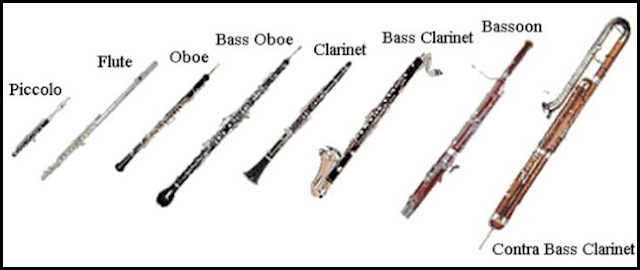Registers and Pitch Centers
I was having an extended conversation today with one of my long-time collaborators, Carl Clements. We were discussing instrumental choices and combinations for a couple of upcoming album recording projects, and within that, various woodwind-family instruments and their pitch centers. Carl has been playing more alto sax of late, and as I mentioned to him, "living in Eb." Carl's two main instruments are tenor and soprano saxophone; both of which are pitched in Bb. He also plays flute, which is pitched in C.
We were discussing how one keeps track of and remains oriented in differently pitched instruments. He asked if all my guitars were pitched in E, and if so, if it was E in different octaves. It was a good question, but not one with a simple answer.
My guitar-family instruments range from subcontra up to soprano. And within that range, many are in differing registers and pitch centers. For example:
|
Instrument |
Pitch
Center |
|
C Subcontraguitar |
C below bass E |
|
C# Subcontraguitar
|
C# below bass E |
|
D Subcontraguitar |
D below bass E |
|
E Contraguitar |
Bass E; one octave below concert E guitar
tuning |
|
G Baritone guitar |
G minor third above bass E |
|
C# Concert guitar |
minor third below concert E |
|
E Concert guitar |
E concert standard guitar |
|
G Alto guitar |
minor third above concert E |
|
A Alto guitar |
perfect fourth above concert E |
|
D soprano guitar |
minor seventh above concert E |
|
E soprano guitar |
one octave above concert E |
It is all rather orchestral.
-kk




Comments
Post a Comment